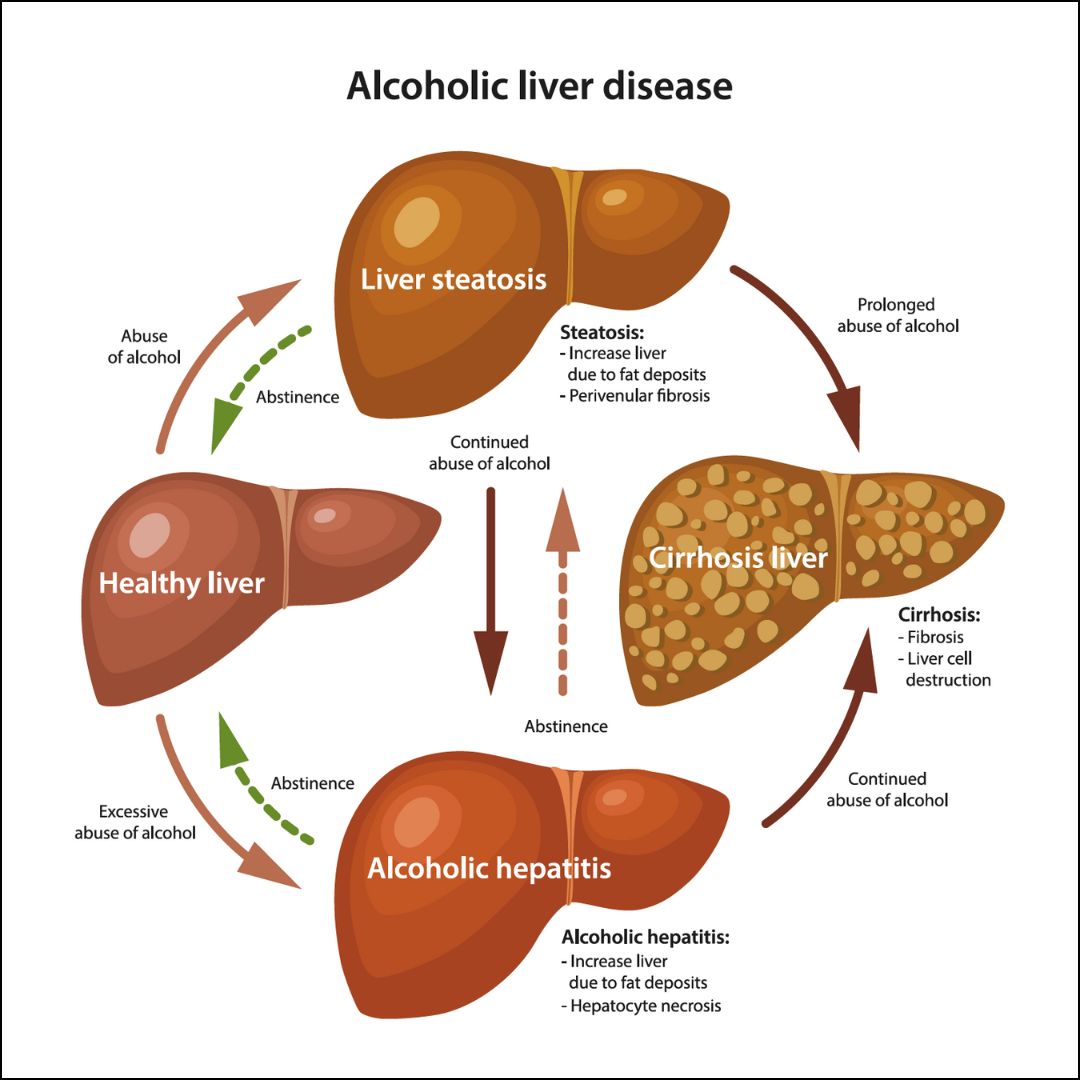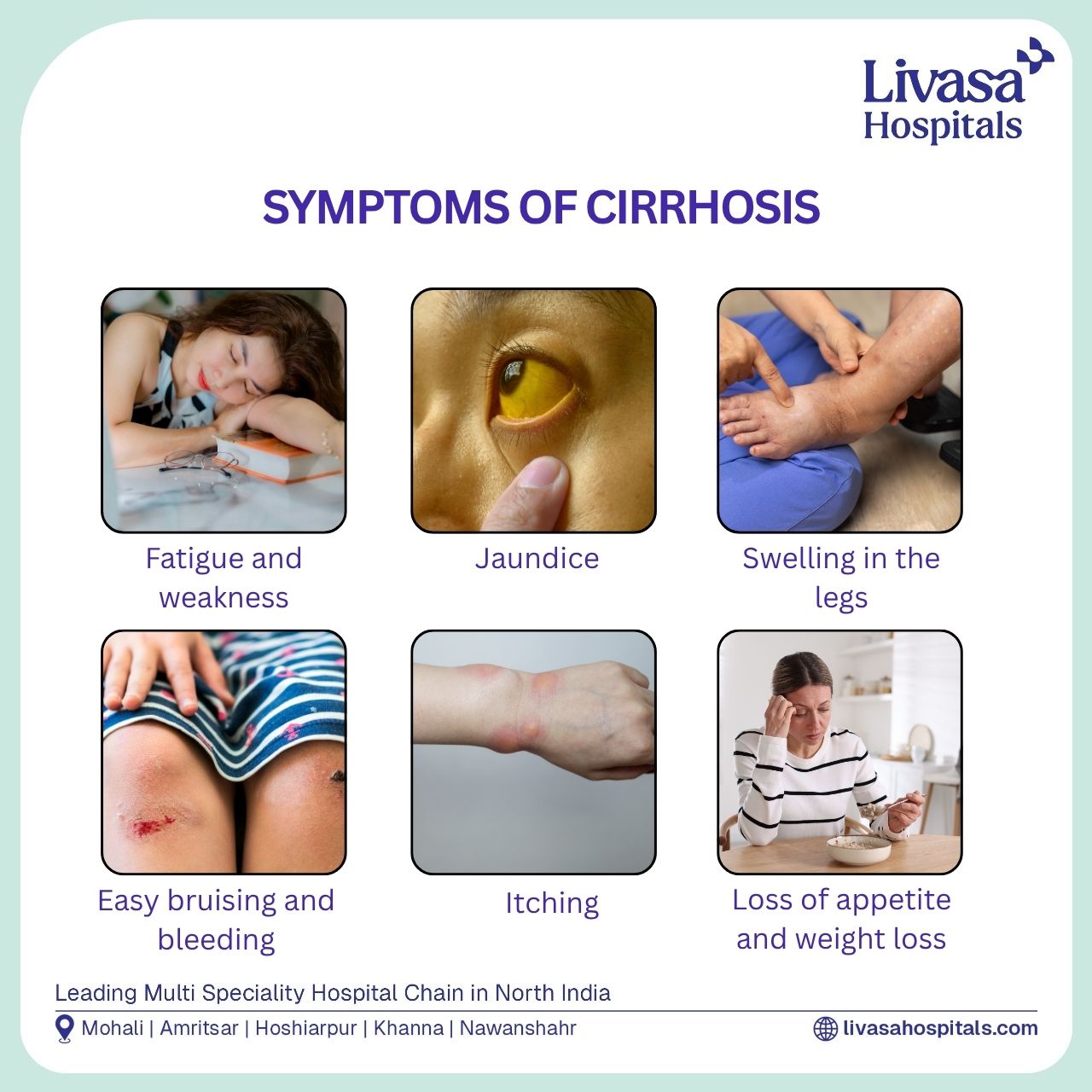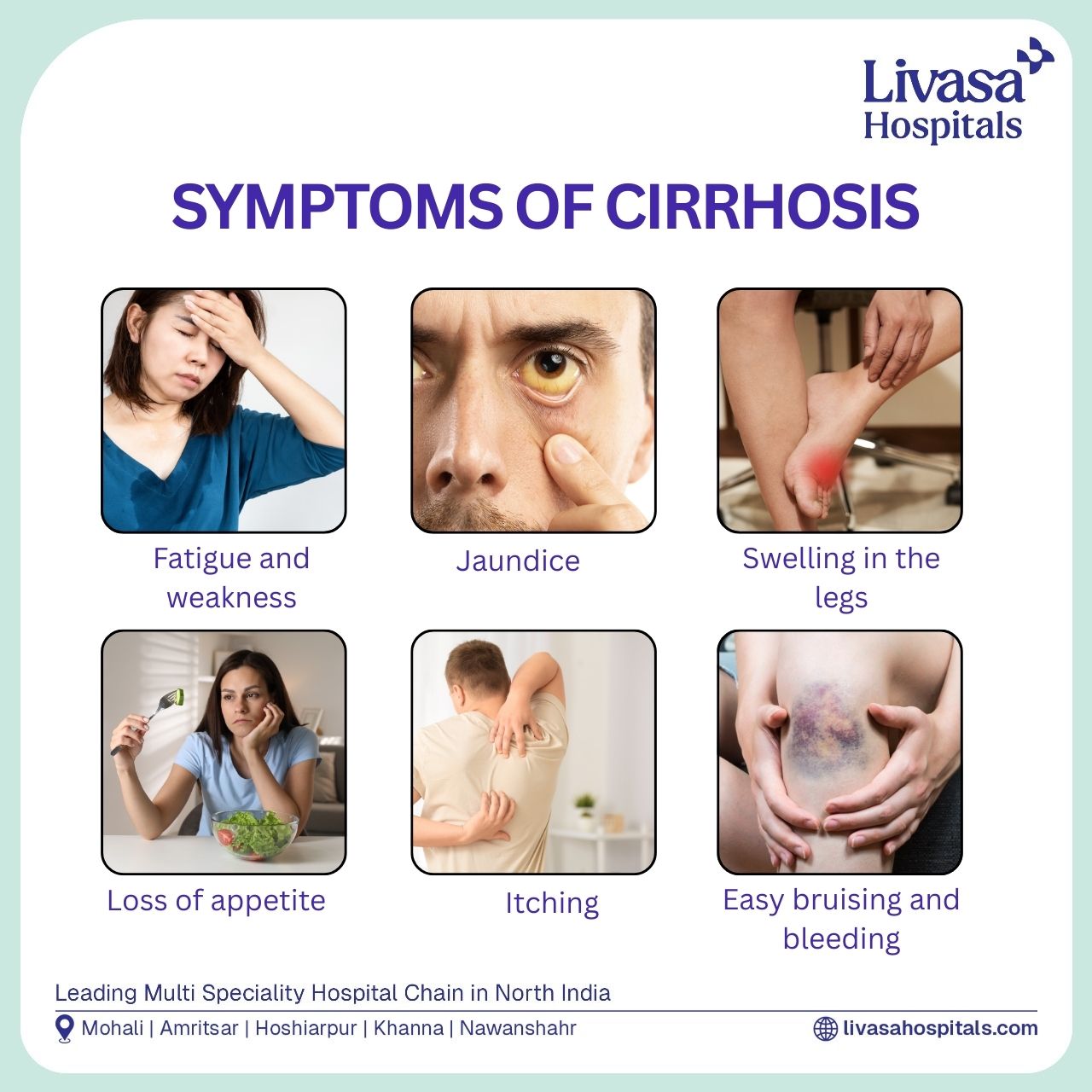03 Feb 2026
Rhinoplasty Revision Surgery in Mohali: Cost When Your First Nose Job Fails


Dr. (Prof) Arunanshu Behera
22 May 2025
Call +91 80788 80788 to request an appointment.
Alcoholic liver disease (ALD) represents a spectrum of liver damage caused by excessive alcohol consumption, ranging from simple fatty liver to severe cirrhosis. It is a significant cause of morbidity and mortality worldwide, especially in regions where alcohol consumption is prevalent. Understanding the progression of alcoholic liver disease is crucial for effective management and prevention, particularly in Punjab, where lifestyle and cultural factors impact alcohol consumption patterns.
As individuals consume alcohol, the liver metabolizes it, but chronic overconsumption can lead to inflammation, scarring, and ultimately cirrhosis. This blog will delve into the pathogenesis of alcoholic liver disease, its progression stages, symptoms, and treatment options. Our focus will also highlight the importance of resources such as Livasa Hospitals for comprehensive liver disease treatment in Punjab, ensuring that individuals receive the best possible care.
Alcoholic liver disease encompasses several stages, including fatty liver, alcoholic hepatitis, and cirrhosis. Each stage has specific characteristics and risks that are important for patients to understand:
Each of these stages can lead to serious health problems and highlights the importance of early detection, monitoring, and intervention. Understanding this disease's progression allows for timely treatment and improved quality of life.
Understanding the pathophysiology of alcoholic liver disease is crucial for recognizing how alcohol affects liver function. The process starts with alcohol metabolism in the liver, primarily through the enzyme alcohol dehydrogenase, which converts alcohol into acetaldehyde, a toxic substance. This process can lead to several cellular changes:
By understanding the pathogenesis of alcoholic liver disease, patients can appreciate the significance of reducing alcohol intake and taking proactive measures to protect their liver health.

The symptoms of cirrhosis can be variable and may not appear until the disease is advanced. Some common signs and symptoms include:
If you or a loved one is experiencing these symptoms, it is crucial to seek medical advice from experts in gastroenterology. At Livasa Hospitals, our gastroenterology specialists in Punjab provide comprehensive assessments and personalized treatment plans to manage alcoholic liver disease effectively.

Many factors contribute to the development of alcoholic liver disease and its progression. Some of these include:
Understanding these risk factors and the stages of progression allows healthcare providers to tailor management strategies and help patients make informed lifestyle choices.
Prevention is always better than treatment, especially concerning alcoholic liver disease. Here are several strategies to minimize the risk:
Making informed choices regarding lifestyle and diet is essential for liver health and reducing the risk of alcoholic liver disease.
Treatment for alcoholic liver disease varies based on the severity of the condition. Options include:
| Treatment Type | Description | Notes |
|---|---|---|
| Lifestyle Changes | Reduction or cessation of alcohol intake. | Essential initial step for recovery. |
| Nutritional Support | Dietary adjustments to improve liver health. | May include vitamin supplementation. |
| Medications | Anti-inflammatory medications, steroids, etc. | Specific medications based on condition. |
| Liver Transplant | Considered for patients with end-stage liver disease. | Last resort option. |
Working with a healthcare team specializing in gastroenterology is essential for determining the best treatment approach based on individual conditions. Livasa Hospitals provides advanced liver disease care in Punjab.
Managing alcoholic liver disease encompasses both medical treatment and psychological support. Encouraging patients to engage in support groups, therapy, and counseling can provide a holistic approach to recovery. Psychosocial interventions may include:
At Livasa Hospitals, our dedicated team offers comprehensive gastroenterology services, facilitating both medical treatment and support for patients facing the challenges of alcoholic liver disease and its complications.
Alcoholic liver disease is a serious health concern that can lead to severe liver damage and other systemic complications. Understanding its progression, recognizing symptoms, and seeking timely intervention can significantly improve outcomes. Preventive measures, coupled with effective treatment options, pave the way for healthier living.
Individuals concerned about their liver health are encouraged to reach out to our specialists at Livasa Hospitals. By prioritizing liver health today, you can take significant steps toward a healthier future. For appointments or consultations, please book a visit or contact us at +91 80788 80788.
Early detection saves lives. Visit Livasa Hospitals today for comprehensive liver disease treatment in Punjab or book an appointment with our gastroenterology specialists.
Rhinoplasty Revision Surgery in Mohali: Cost When Your First Nose Job Fails
Plastic Surgery After Massive Weight Loss: Body Contouring Packages in Mohali
ENT + Cosmetic in Mohali: Septoplasty for Breathing with Cosmetic Rhinoplasty Offers
Livasa Healthcare Group Corporate Office,Phase-8, Industrial Area, Sector 73, Sahibzada Ajit Singh Nagar, Punjab 160071
| Mohali | +91-99888 23456 |
| Amritsar | +91-99887 49494 |
| Hoshiarpur | +91-99883 35353 |
| Nawanshahr | +91-75081 82337 |
| Khanna | +91-98888 05394 |